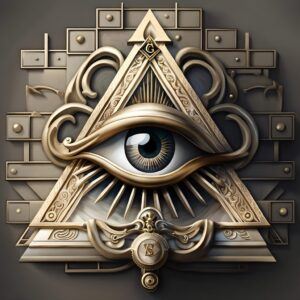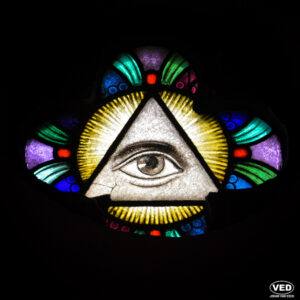
Contents
- 0.1 1. The Rise of the White-Coated Clergy
- 0.2 2. How Labels Became Scripture
- 0.3 3. The Creed of Chemical Imbalance
- 0.4 4. The Pharmaceutical Choir
- 0.5 5. Heretics and Holy Wars
- 0.6 6. The Human Cost of Dogma
- 0.7 7. The Forgotten Art of Meaning
- 0.8 8. When the Market Meets the Mind
- 0.9 9. Cracks in the Cathedral
- 0.10 10. Reclaiming the Mind
- 0.11 11. Toward a New Enlightenment
- 0.12 12. Closing Reflection
- 1 Related Articles
1. The Rise of the White-Coated Clergy
Modern Western life once bowed to the pulpit; now it bows to the prescription pad. Where priests once interpreted sin, psychiatrists interpret symptoms. Both claim to relieve suffering. Both hold the power to define what counts as “normal.”
The 20th century promised liberation through science, but somewhere along the way psychiatry stopped being simply a branch of medicine and started acting like a belief system. Its language—disorder, diagnosis, compliance—has become moral as much as medical. The lab coat replaced the cassock, but the authority feels oddly familiar.
2. How Labels Became Scripture
Every few years the Diagnostic and Statistical Manual (DSM) adds new conditions and revises old ones. It began with fewer than a hundred disorders; today there are hundreds. Each addition widens psychiatry’s reach and tightens its hold on cultural definitions of sanity.
What was once a personal struggle—grief, shyness, doubt—can now carry an alphanumeric code and a billing rate. Insurance companies demand codes, therapists require them, and patients learn to identify with them. The diagnosis becomes a kind of baptism: you are now officially this.
Questioning a diagnosis can feel like heresy. The institution does not take kindly to apostates.
3. The Creed of Chemical Imbalance
For decades, the faithful were taught that depression and anxiety stem from a “chemical imbalance.” It was a simple, elegant catechism—easy to teach, impossible to prove. Even many psychiatrists now admit the theory was metaphor more than measurement.
Yet the story endures because it gives comfort and sells cures. Belief is profitable. Once a narrative takes hold, data bends to defend it, and dissent is dismissed as dangerous. Every religion needs its miracles; every industry needs its market.
4. The Pharmaceutical Choir
Pharmaceutical companies didn’t invent psychiatry, but they composed its hymns. Their advertising blurred the line between illness and inconvenience: sadness became depression, worry became anxiety disorder, restless children became patients. The message was simple—you’re not broken; you’re chemically unlucky, and we can help.
When pills become sacraments, dependence replaces discipline. Medication can be lifesaving—no one denies that—but the ritual of the refill can also become an act of faith. Few stop to ask whether long-term chemical devotion might carry spiritual side effects: numbness, passivity, loss of agency.
5. Heretics and Holy Wars
Those who question the orthodoxy often face ridicule or silencing. Psychiatrists who speak publicly about over-diagnosis risk professional exile; patients who improve through non-medical routes are treated as anomalies.
This isn’t science behaving badly—it’s science behaving humanly. Every institution protects its worldview. Religion once burned heretics; modern systems simply de-platform them. Same instinct, different tools.
6. The Human Cost of Dogma
When everything painful is pathologized, people forget that suffering can be instructive. Grief teaches love; fear teaches caution; failure teaches humility. By medicating every shadow, we dim the light that gives depth to life.
For many, diagnosis brings relief—finally, a name for the chaos. But for others, the label becomes a life sentence. “I am bipolar.” “I have anxiety.” Identity fuses with pathology, and hope quietly leaves the room. That’s the tragedy of dogma: it turns possibility into permanence.
7. The Forgotten Art of Meaning
Long before psychiatry, philosophers wrestled with despair, rage, and madness. They saw anguish as a cry for meaning, not a malfunction. Viktor Frankl, a psychiatrist who survived Auschwitz, warned that a man’s deepest need is not pleasure but purpose.
Modern practice often stops at symptom management. A patient says, “I feel empty.” The system replies, “Let’s adjust your dosage.” But emptiness isn’t a serotonin shortage; it’s a spiritual signal. Treating it purely as chemistry is like trying to fix a heartbreak with a wrench.
8. When the Market Meets the Mind
The union of psychiatry and Big Pharma produced a juggernaut: billions in revenue, armies of reps, glossy ads showing smiling faces and small print about side effects. Every creed needs infrastructure; this one has laboratories, marketing departments, and lobbyists.
Again, medicine saves lives. The problem is monopoly—when one worldview controls both narrative and treatment. In such a climate, alternative paths—nutrition, movement, mindfulness, faith, community—get framed as “complementary,” never central. The unspoken rule: salvation must be dispensed, not discovered.
9. Cracks in the Cathedral
Despite the grandeur, the pillars are shaking. Former insiders are calling for reform: more humility, less hubris. Neuroscientists admit that the brain is still a mystery. Patients form peer groups, exchange survival stories, and demand informed consent.
The internet—ironically the same tool that spreads disinformation—also spreads emancipation. People are realizing that authority without accountability is not wisdom; it’s power. Every priesthood eventually faces its Reformation.
10. Reclaiming the Mind
To question psychiatry’s dominance is not to reject help; it’s to reclaim ownership of one’s narrative. True mental health involves agency, not obedience. It asks:
- What am I feeling, and why?
- What can I change through behavior, relationships, or belief?
- When is medication a tool, and when does it become a crutch?
Healing begins when the person becomes participant, not patient. That shift—small but seismic—is the modern equivalent of nailing a thesis to the door.
11. Toward a New Enlightenment
The goal isn’t to abolish psychiatry but to de-theologize it—to return it to open inquiry, evidence, and humility. A humane psychiatry would welcome dissent, admit uncertainty, and see itself as one voice in a larger conversation about the human condition.
Imagine a future where diagnosis describes rather than defines, where pills assist rather than replace personal growth, and where the word therapy once again means “to heal,” not “to manage.”
That’s the reform worth fighting for—not a war on medicine, but a war on dogma.
12. Closing Reflection
Every age builds a priesthood to guard its truths. Ours just happens to wear badges that read “MD.” But history shows that every orthodoxy eventually meets its heretics, and progress depends on them.
If psychiatry wishes to remain a science, it must learn from its own patients: listen, adapt, and remember that healing begins where control ends.
Until then, the rest of us are free to keep asking forbidden questions—because that’s how enlightenment always starts.
Related Articles
The Illuminati Formula For Mental Clarity





